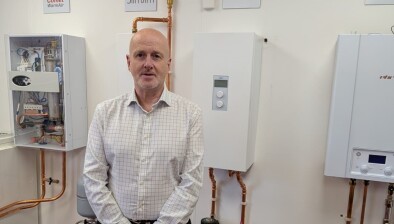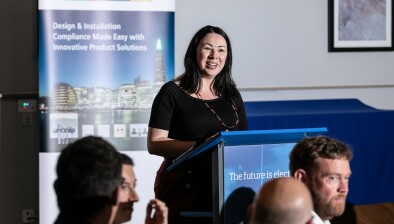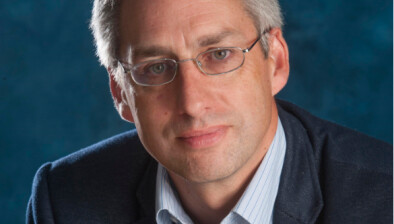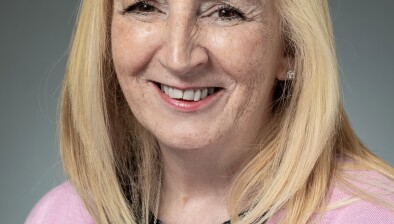Scotland ‘needs twice as many electricians’ to achieve net zero goals
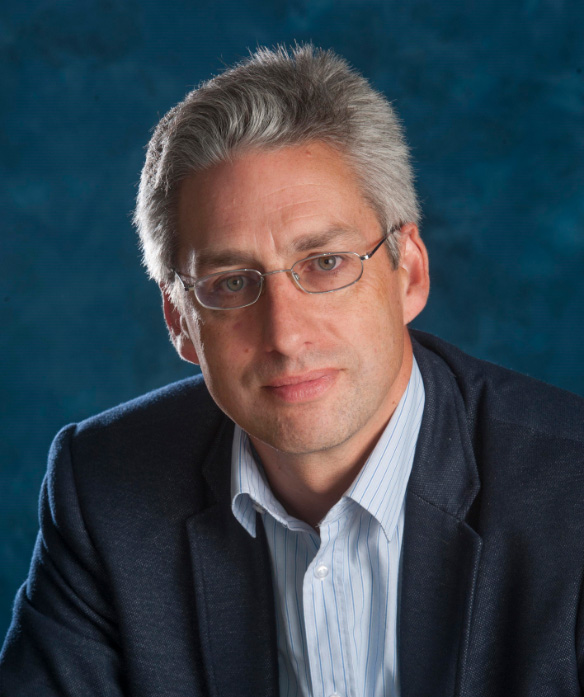
Professor Sean Smith
Scotland needs twice as many qualified electricians as it currently has in order to successfully transition to net zero, a construction expert has warned.
Professor Sean Smith, director of the Centre for Future Infrastructure at the Edinburgh Futures Institute, made the remarks in the latest Sparks’ Remarks podcast from trade association SELECT.
He said more recruitment is needed to keep pace with the growth in the renewables sector, and that there is an unprecedented pathway of work and a “golden travel ticket” for those who undertake suitable upskilling and training.
Speaking to journalist Kim McAllister, Professor Smith said the future is bright for Scotland’s electricians but the country needs to upgrade both its infrastructure and educational opportunities to ensure it is at the forefront of green technology.
Professor Smith, who is also chair of Future Construction in the School of Engineering at the University of Edinburgh, said: “The number of people currently studying electrical engineering or to become an electrician is up across the sector, and you could probably fill our universities and colleges twice over, which is great.
“But do we need more? Yes, probably double the number really, which rather begs the question: do we need to expand our facilities and resources to meet that demand?
“Part of the hurdle is also to make sure we make people aware of the scale of work on offer because the consideration of just how much is coming for the sector is unprecedented; never before in its history has there been such a pathway of work to come.
“It has taken the last 90 years to create the electricity system we now enjoy, but to meet the transition away from fossil fuels we’ll need to build at least five times the amount of infrastructure in the next 20 to 25 years, so the opportunities are really exciting.
“Probably no other sector has had such an opportunity to make such a transitional national change that affects all our lives. And so it’s really exciting for the entire electrical sector of what’s to come and the role it will play; it’s absolutely fundamental and is just tremendous.
“However, to create the infrastructure that we need going forward, like electric vehicles (EVs) and charging points, there are some significant issues with current grid capacity, and particularly when we look at localised sub-stations, particularly across the Central Belt.”
In the episode, entitled Unprecedented Opportunities Ahead for Electricians, Professor Smith said people should see being a qualified electrical professional as their passport to lucrative and rewarding work anywhere in the world.
He said: “We need to encourage many of our workforce, particularly young people, to see our industry as a golden travel ticket, so once you become an electrician or electrical engineer you can move anywhere.
“I myself worked in Canada, Italy and Germany so I’d certainly encourage other people to travel and work overseas to see other cultures and how things operate.
“Obviously we’d love them to return too, so hopefully in the future they can bring that knowledge back with them and make good use of it in the homeland.”
Professor Smith also said that the switch to renewable technology would also require “a huge culture change” and for the public to be convinced that going green was cheap and efficient.
He said: “People want more confidence and less stress, such as range anxiety and want to know that there will be charging points not only installed but reliably working. So that’s another opportunity for the sector to intervene and support that.
“Across the UK, 75% of charging points are in private households, with only 25% in public locations, so we need to ramp that up. To do that, we again need to look at sub-stations because we have the renewable power but need to amplify the infrastructure to support it.”
He added: “The thing with new technologies and all new systems is that they can take a bit of time to bed in, but there have certainly been better technologies coming through that make things more efficient
“However, we need to make things more cost effective because we can’t leave people behind. We need society to come with us as this is their future as much as it is the industry’s.”













